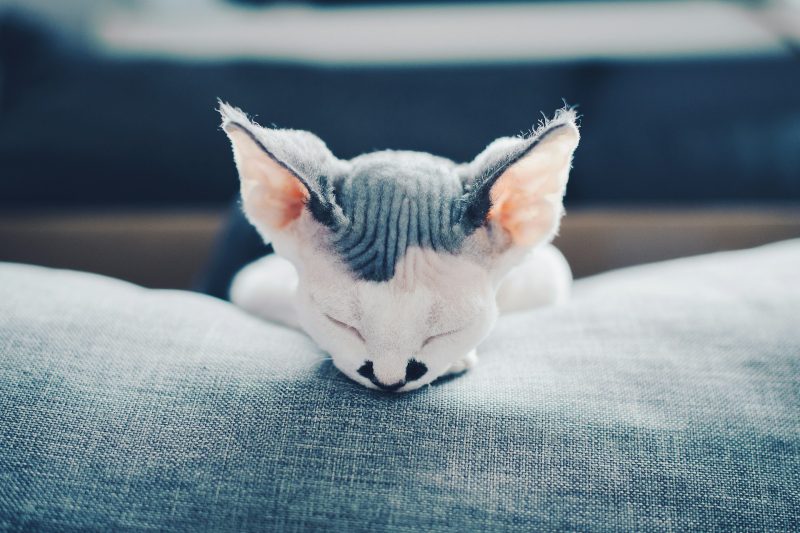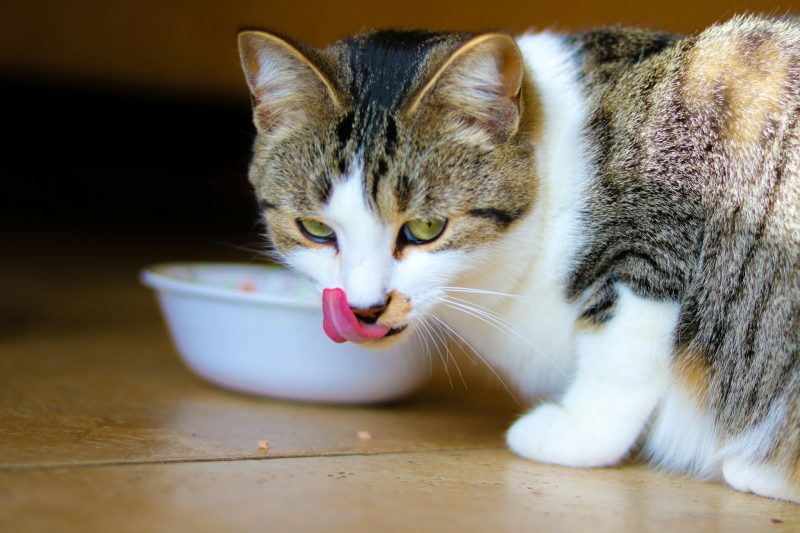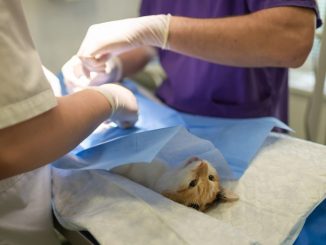
As a loving pet parent, seeing your feline friend under the weather can be heart-wrenching. Cats, with their stoic nature, often hide their discomfort, making it even more challenging to care for them when they’re sick. One of the most crucial aspects of nursing a sick cat back to health is ensuring they receive the right nutrition. But what exactly should you feed your cat when they are sick? This article aims to provide you with comprehensive insights into the best dietary choices for your ailing kitty.

Understanding Cat Sickness: What To Feed Your Cat When They Are Sick
Recognizing the Signs of Sickness in Cats
Cats are masters at hiding their discomfort, which makes it essential for pet owners to be vigilant. Some common signs that your cat might be sick include:
- Changes in appetite or drinking habits
- Lethargy or unusual tiredness
- Vomiting or diarrhea
- Weight loss or gain
- Changes in grooming behavior
- Persistent coughing or sneezing
- Behavioral changes such as aggression or withdrawal
If you notice any of these symptoms, it’s important to consult with your veterinarian to determine the underlying cause.
Common Illnesses in Cats
Cats can suffer from a range of illnesses, some of the most common being:
- Upper respiratory infections
- Kidney disease
- Diabetes
- Hyperthyroidism
- Feline leukemia virus (FeLV) and feline immunodeficiency virus (FIV)
- Gastrointestinal issues like IBD (inflammatory bowel disease)
Early detection and treatment are key to managing these conditions effectively. Regular vet check-ups and monitoring your cat’s health can help catch these issues early.
The Importance of Proper Nutrition During Sickness
When cats are sick, their nutritional needs often change. Proper nutrition can support their immune system, aid in recovery, and provide necessary energy. Here are a few reasons why nutrition is crucial during sickness:
- Immune Support: Nutrient-rich food helps to strengthen the immune system, making it easier for your cat to fight off infections.
- Energy and Vitality: Sick cats often have reduced appetites. High-quality, nutrient-dense foods ensure they get the energy they need in smaller portions.
- Healing and Recovery: Certain nutrients play a vital role in tissue repair and recovery, helping your cat heal faster.
Ensuring your sick cat gets the right nutrition can make a significant difference in their recovery and overall well-being. In the next chapter, we’ll delve into how to choose the right food for your ailing feline friend, taking into account their specific nutritional requirements and preferences.
Nutritional Requirements for Sick Cats
When your furry friend is under the weather, their nutritional needs can change dramatically. A balanced diet that provides essential nutrients is crucial for their recovery. Key components to focus on include:
- Protein: High-quality protein sources help maintain muscle mass and support healing.
- Fat: Good fats are an excellent energy source and support the immune system.
- Vitamins and Minerals: Essential for overall health and immune function. Vitamins such as B-complex and E play a pivotal role.
- Hydration: Ensuring adequate fluid intake can be critical, especially for conditions like kidney disease.
Types of Cat Foods Suitable for Sick Cats

Selecting the right type of food depends on your cat’s specific illness and their preferences. Here are some options to consider:
- Prescription Diets: These are formulated to meet the needs of cats with specific health issues such as kidney disease or diabetes. Consult your vet for the best option.
- Wet Food: Often more palatable and higher in moisture, which is beneficial for hydration.
- Homemade Diets: When done correctly, these can be tailored to your cat’s needs. Be sure to consult a veterinary nutritionist to ensure the diet is balanced.
- Commercial High-Quality Cat Foods: Look for brands that prioritize high-quality ingredients and have formulas designed for specific health concerns.
What To Feed Your Cat When They Are Sick
Choosing the Right Cat Food
Wet Food vs. Dry Food
Wet Food
Wet food is often recommended for sick cats because it is easier to digest and contains higher moisture content, which helps keep your cat hydrated. Dehydration can be a significant concern when your cat is unwell.
Dry Food
While dry food can be convenient, it may not be the best option for a sick cat unless specifically recommended by your vet. Dry food lacks moisture and can be harder to digest.
Factors to Consider When Selecting Cat Food
Choosing the perfect food for your sick cat involves more than just looking at the label. Here are some factors to keep in mind:
- Palatability: Sick cats often have reduced appetites. Foods with strong aromas and flavors can encourage them to eat.
- Ingredient Quality: Opt for foods with high-quality, easily digestible ingredients.
- Specific Health Needs: Tailor the diet to the specific condition affecting your cat. For example, low-phosphorus diets for cats with kidney disease.
- Veterinary Recommendations: Always consult with your veterinarian to choose the most appropriate food for your cat’s condition.
Feeding your sick cat the right food can make a significant difference in their recovery. Stay tuned for the next chapter, where we’ll dive into practical feeding tips and strategies to ensure your cat gets the nourishment they need.
Feeding Tips and Strategies
Encouraging Your Sick Cat to Eat
Getting a sick cat to eat can be challenging, but it’s crucial for their recovery. Start by offering foods that are highly palatable and aromatic. Warming up wet food slightly can enhance its smell and make it more appealing. Additionally, try hand-feeding or using a syringe if necessary. Patience and persistence are key here.
Serving Sizes and Feeding Schedules
When your cat is unwell, it’s essential to adjust their serving sizes and feeding schedule. Smaller, more frequent meals can be easier for a sick cat to digest and manage. Aim for feeding every 4-6 hours, depending on your vet’s advice. Monitor how much your cat eats at each meal and adjust portions accordingly to avoid overfeeding or underfeeding.
Hydration and Supplementation
Hydration is vital for a sick cat. Ensure they have access to fresh water at all times. If they’re not drinking enough, consider adding water or low-sodium chicken broth to their food. For cats with specific illnesses, you might need to incorporate supplements like probiotics, omega-3 fatty acids, or vitamins into their diet. Always consult your veterinarian before introducing any supplements.
Proper hydration and nutrition play a significant role in your cat’s recovery process. By encouraging them to eat, adjusting serving sizes, and ensuring they stay hydrated, you can support their journey back to health.
Nursing Your Sick Cat
Creating a Comfortable Environment
When your cat is sick, ensuring they have a calm and comfortable environment is crucial for their recovery. Start by designating a quiet area in your home where your cat can rest undisturbed. This space should be away from high-traffic areas and loud noises.
Provide a cozy bed with soft blankets to keep them warm, as sick cats often need extra warmth. Keep the litter box, food, and water dishes nearby but not too close to each other, as cats prefer some separation between their bathroom and dining areas. Make sure the area has good ventilation but is free from drafts, which can exacerbate certain illnesses like respiratory infections.
Monitoring Your Cat’s Progress
Monitoring your cat’s progress is essential to ensure they are on the path to recovery. Take note of their eating and drinking habits, as well as their energy levels and behavior. A decrease in appetite, lethargy, or changes in bathroom habits can indicate that their condition may not be improving.
Keep a daily log of observations, including any medications administered and their effects. This will be helpful when discussing your cat’s condition with your veterinarian. Watch for signs of improvement, such as increased activity levels, a return to normal eating habits, and more regular bathroom use.
When to Seek Veterinary Care
It’s important to know when to seek veterinary care for your sick cat. If your cat shows signs of severe illness, such as prolonged vomiting, diarrhea, difficulty breathing, or significant weight loss, contact your vet immediately. Additionally, if there is no improvement within a few days of starting home care, or if your cat’s condition worsens, a vet visit is necessary.
Always trust your instincts as a pet owner. If something doesn’t seem right, it’s better to err on the side of caution and consult with your veterinarian. Early intervention can make a significant difference in your cat’s recovery.
By creating a comfortable environment, diligently monitoring your cat’s progress, and knowing when to seek professional help, you can significantly contribute to your feline friend’s recovery process. Remember, your attentiveness and care play a vital role in nursing your sick cat back to health. “`
Recovery and Transitioning Back to Regular Diet

Gradual Reintroduction of Regular Cat Food
Once your cat starts showing signs of recovery, it’s crucial to gradually reintroduce their regular diet. Abrupt changes can upset their stomach, leading to further complications. Start by mixing a small amount of their regular food with the special diet they were on while sick. Gradually increase the proportion of regular food over a week or two until they are back to their normal diet.
Signs of Recovery and Improved Appetite
Monitoring your cat’s appetite and energy levels is vital during the transition phase. Signs that your cat is recovering include increased interest in food, more energy, and regular bowel movements. Keep an eye on these indicators and consult your vet if you notice any setbacks.
Indicators of Recovery
- Increased appetite and willingness to eat
- More energy and playful behavior
- Regular and healthy bowel movements
- Improved grooming habits
Maintaining a Balanced Diet for Long-Term Health
Even after your cat has fully recovered, maintaining a balanced diet is essential for their long-term health. Ensure their diet includes high-quality protein, essential fats, and vitamins. Consult your veterinarian for recommendations on the best food options tailored to your cat’s needs.
Key Components for a Balanced Diet
- High-quality protein sources
- Essential fatty acids
- Vitamins and minerals
- Adequate hydration
By following these guidelines, you can help ensure your cat makes a full recovery and stays healthy in the long run. Always consult with your vet before making any significant changes to your cat fod.
Conclusion:
Caring for a sick cat requires patience, love, and attention to detail—especially when it comes to their diet. By understanding what to feed your cat when they are sick, you can significantly contribute to their recovery process. Remember always to consult with your veterinarian before making any significant changes to your cat’s diet or feeding routine.
- Tuna should only be given occasionally and in small amounts.
- Small frequent meals are ideal for maintaining energy levels.
- Wet food is generally better than dry food for sick cats.
- Specialized nursing cat food is crucial for lactating mothers.
By following these guidelines and consulting with your vet, you’ll be well-equipped to nurse your feline friend back to health effectively. So go ahead—give them the love and care they deserve!





Be the first to comment